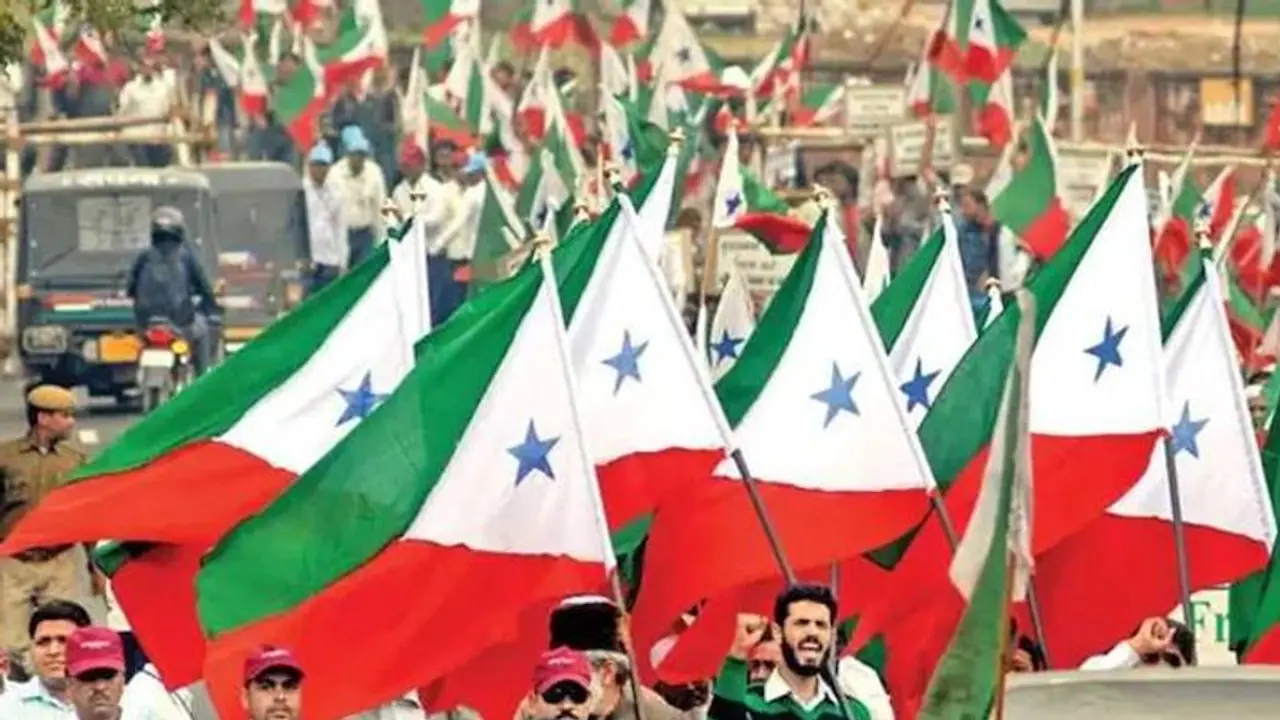Popular Front of India (PFI) was founded in 2006 when three organisations from Kerala, Tamil Nadu, and Karnataka merged to form a "pan-India organisation for empowering the Muslim community."
The Centre announced the Popular Front of India (PFI) and its affiliates an "unlawful association" with immediate effect on Wednesday, banning it for five years. This comes after authorities arrested many members of the Islamic organisation on Tuesday and earlier this month, accusing them of violence and anti-national activities. In recent years, the Bharatiya Janata Party has spoken against the organisation, accusing Congress of being too soft on it.

What is PFI?
PFI was founded in 2006 when three organisations from Kerala, Tamil Nadu, and Karnataka merged to form a "pan-India organisation for empowering the Muslim community." PFI's headquarters are in Delhi.
The Social Democratic Party of India (SDPI), the student wing Campus Front of India, the National Women's Front, an NGO called Rehab India Foundation, and a think tank called Empower India Foundation are all part of the organisation.
PFI is accused of being an offshoot of the banned terrorist organisation Students' Islamic Movement of India (SIMI). It has been on the radar of the Enforcement Directorate. The agency looking into financial crimes is looking into PFI's alleged funding of anti-Citizenship (Amendment) Act protests, the 2020 Delhi riots, and the alleged Hathras conspiracy.
PFI is widely regarded as a fundamentalist organisation. In 2017, the NIA wrote to the Centre, requesting that PFI be prohibited. The anti-terror organisation had labelled the group a threat to national security. PFI claims to have a presence in 23 Indian states.
In its charge sheet, ED recently stated that PFI and its student wing CFI collected funds for the group in the gulf countries under the guise of business deals. This money is said to have been used to fund anti-Indian activities. According to experts, PFI considers itself anti-RSS, the BJP's ideological mentor.
The organisation has also been linked to incidents of Love Jihad in Kerala, forced conversion, and sending youths to join ISIS in Afghanistan and Syria.
The reason the Centre banned PFI,
According to the Central Government, PFI and its associates operated as a socioeconomic, educational, and political organisation but were pursuing a secret agenda to radicalise a specific section of society, working to undermine the concept of democracy and showing sheer disrespect for the country's constitutional authority and constitutional set up.
According to the Centre, PFI was involved in illegal activities that jeopardised India's integrity, sovereignty, and security.
According to the Centre, the founding members of PFI were linked to the banned SIMI, and the group has ties to Jamat-ul-Mujahideen Bangladesh (JMB).
It also accused the group of being linked to global terror organisations such as ISIS. According to the Centre, PFI and its associates worked undercover to "increase the radicalisation of one community by promoting a sense of insecurity."
"Having regard to the above circumstances, the Central Government is of the firm belief that it is necessary to declare the PFI and its associates, affiliates, or fronts as an unlawful association with immediate effect, and accordingly, in the exercise of the powers conferred by the proviso to sub-section (3) of section 3 of the said Act, the Central Government with this directs that this notification shall, subject to any order that may be made under section 4 of the said Act," it said.
Why is the PFI on the NIA and ED radar?
The Enforcement Directorate (ED) has been looking into the PFI's alleged 'financial links' to the country's Anti-Citizenship (Amendment) Act protests, the Delhi riots in February 2020, a purported conspiracy in the case of gang rape and the death of a Scheduled Caste woman in Hathras, Uttar Pradesh, and a few other cases.
In the aftermath of the Hathras gang-rape case, the ED filed its first charge sheet against the PFI and its Campus Front of India (CFI) student wing on money laundering charges in February last year, alleging that its members wanted to 'incite communal riots and spread terror.'
K A Rauf Sherif, national general secretary of the CFI and a PFI member; Atikur Rahman, national treasurer of the CFI; Masud Ahmed, general secretary of the CFI in Delhi; Siddique Kappan, a journalist linked to the PFI, and Mohammed Alam, another CFI/PFI member, are all named in the charge sheet.
Also Read: PFI banned for five years, Government cites national security threat
Also Read: Not just PFI, 8 of its fronts have also been banned; Here's why
Also Read: What does the ban on PFI and other fronts mean to India? All you need to know
